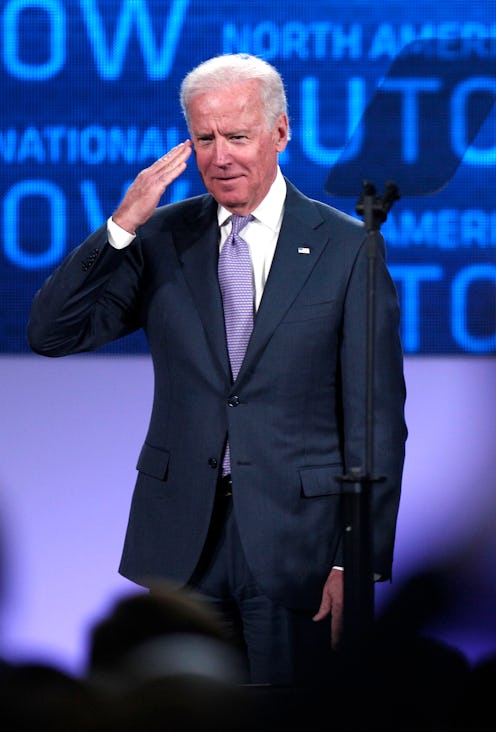Iraq's had a tumultuous few weeks, but Joe Biden might just have the answer to Iraq's problems. Well, Joe Biden of 2006 did. When the Iraq war was beginning to draw to a close and Biden was a U.S. Senator, Biden drafted a plan for the partition of Iraq, based on ethnic and religious boundaries. The now-Vice President's idea was largely ignored at the time, but as sectarian violence has escalated in Iraq this week, it's resurfaced.
So what did he have in mind? A bit of background: Iraq, whose boundaries were drawn by Britain in 1920, is comprised primarily of Arabs, with a large ethnic Kurdish minority (15-20%) in the North. The Kurds have been fighting for a sovereign state since the 1930s and have taken advantage of recent unrest to try to establish control over some northern cities. Iraq is also suffering from violence between religious groups. The country is primarily Shiite Muslim, the religion that dominates neighboring Iran, but there is a substantial Sunni minority (about 35%).
Until the fall of Saddam Hussein in 2006, the Sunni minority ruled the Shiite majority. Today, Iraq has a Shiite prime minister — in part thanks to the United States — and some Sunnis aren't happy about it. A Sunni terrorist group, known as ISIS (Islamic State of Iraq and Syria), has been attacking towns and cities all over Iraq, hoping to gain control for the religious minority, and plunging the country into sectarian violence.
With Iraqi Prime Minister Nouri Kamil Mohammed Hasan al-Maliki calling for help, the U.S. government has been throwing around a wide array of options. In May of 2006, then-Senator Biden penned an op-ed for The New York Times that urged the Bush administration to consider partitioning the country along religious and ethnic lines.
Biden suggested that Sunnis, Shiites, and Kurds all have their own separate region of the country, which would all fall under the control of a central government in Baghdad. At the time, Biden's argument was criticized. Many conservatives favored a surge of troops, instead, especially when the 2007 surge brought an improvement in conditions.
Others called Biden's plan a "soft partition," and argued it would lead to ethnic cleansing. Eventually, violence in Iraq subsided, and people forgot about Biden's plan, chalking it up to another Biden goof.
But, now, with Iraq dissolving into sectarian violence, some are starting to reconsider Biden's suggestion. In 2006, Biden wrote of the nation, that "a breakup is already underway," and now it seems he was right. Leslie Gelb, president emeritus of the Council on Foreign Relations, has said that it might be "the only thing" to work at this point.
Others still think the plan could be difficult to implement, and that Iraqis might not go for it. However, the Kurds seem to be in favor of the idea, and may try to force an independent Kurdish state in the North, even if the rest of Iraq doesn't comply.
Whether or not Iraqis like it, their country is in a state of massive disarray, and ethnic and religious divisions are likely to become more prominent. Partitions don't always work well — see India and Pakistan — but sometimes they have a way of quelling the violence, as Biden argued happened in the former Yugoslavia.
